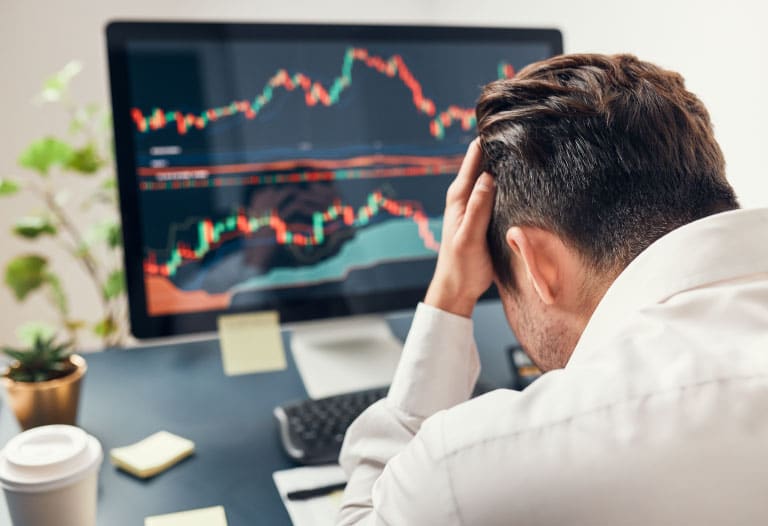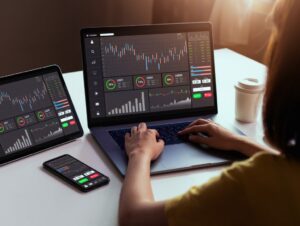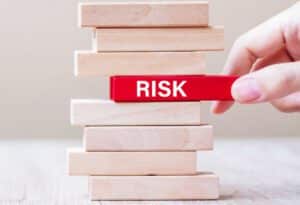
Table of Contents
ToggleLos mercados pueden permanecer irracionales más tiempo del que los usuarios podemos mantenernos líquidos. Sin embargo, nuestro peor enemigo no suele ser el mercado, si no nosotros mismos y el trading por venganza es un gran ejemplo, del daño que podemos ocasionarnos.
Definitivamente, el factor psicológico juega un rol fundamental en el mundo de la compra venta de activos. De no encontrarnos en control de nuestras emociones, estas pueden jugarnos una mala pasada.
En este artículo, analizaré el concepto de trading por venganza. Mediante su explicación, compartiré también, algunos consejos para evitar caer en esta práctica, capaz de licuar nuestras tenencias.
Revenge trading
Revenge trading occurs when a trader executes one or more operations in order to recover from a loss resulting from a previous operation. Generally, these are significant losses of money for this trader, who will try to recover his holdings, even daring to risk more than the account.
Without going into deep psychological concepts, we can infer that it is a defense mechanism related to our own instincts. The market has taken from us, so now it is our turn to take from it. After this brief introduction, perhaps it will be simpler to understand why it is called “revenge trading”.
While our instincts, in part, are what have brought us to the point in history where we are now, in the world of trading, they can be counterproductive. The need to “get even” or “get our money back” can catapult us into making irrational decisions, driven by the desire to get back “what is ours”.
In short, revenge trading is at the antipodes of what is always recommended to new traders. Controlling emotions, acting according to coldly delineated plans and risk management appropriate to each profile, is the recipe presented by those who have fought many battles in this volatile market.
When executing a revenge trade, the biggest risk we expose ourselves to is that what could have been just an isolated loss or a simple bad trade in our history, can be consummated as the loss of a significant percentage of our portfolio.
Why would a trader trade for revenge?
The answer is simple, we are human beings. No matter how rational, prepared and studied we become before we get in front of our computer and make a trade, too many times our emotions will get the better of us and take over our actions.
There is a good chance that, as a trader, throughout your history, you will find yourself trading for revenge. The point is simple, no one likes to lose money. These losses can unleash different feelings within us that can easily take over and guide our destiny.
The market, both traditional and crypto, often presents us with traps. A trader who has just lost a significant amount of money can count on the hope of having fallen into one of these traps and quickly recover by betting on the opposite movement. By trading against the new trend, he will believe that he will avenge his previous move and, by neglecting his trading plan, he will end up with even greater losses.

How to avoid revenge trading?
This type of mistake, which even the most experienced traders can fall into, is difficult to overcome. The pain of a financial loss can cloud the judgment of the wisest and most conscious traders.
However, there are certain recipes that can give us a hand in dealing with our emotions and help us avoid trading for revenge.
Taking distance
As in any situation we must face in our lives, taking distance is often an excellent recipe for getting rid of clouded judgment. Let’s imagine the following situation. You are convinced of a trade, you have taken into account different parameters of technical analysis and you venture to open a position. Now, the market proves you wrong and the price drops to your stop loss.
What do you do now, operate in anger over your failed trade? Put this way, it doesn’t seem like the best option. Clearly, taking a step back, engaging in another activity until you find yourself back on your own axis, may be the wisest decision you can make.
Perhaps this distance will help you process the fact that, in this market, as well as in the traditional one, losses are a situation to which we will have to get used to, since they are part of the game. With time, their effects will lose their potency and we will be able to react in a cooler way to the inevitable blows that the market will throw directly in our face.
Review your plan again
As a trader, before starting to trade in the market, it will be necessary that you have outlined a detailed plan that contemplates:
- Risks you are willing to take
- Patterns according to which you will operate
- Size of your wallet
- Percentages of loss you are willing to bear
- Method to calculate your position
It is obvious that a plan that values so many details will have been made calmly and paying attention to very precise considerations. Thus, it is this plan that will protect you from making irrational decisions, without logical basis, based on your emotions of the moment.
It will be then, after that trade that has made you lose money, making you feel frustrated and angry, both with yourself and with the market, when you should go back to your plan, the one you created governed by reason and logical reasoning.
Careful, with this I am not trying to state that it is not right to feel angry or frustrated, after losing money. I must be realistic, and clarify that nobody likes to lose their capital. What we must keep in mind is that we cannot control those situations that depend on external factors, what we can control is how we react to the occurrence of these situations.
Calmness, good judgment and assuming losses with gallantry, are presented as a fundamental triad to avoid revenge trading.
Learn from your defeats
Again, we return to a piece of advice that transcends our relationship with the market to encompass our life as an integral whole. That we will stumble along our way through this highly volatile market, there is no doubt. So, as we find ourselves exposed to constant stumbles, what would be a prudent decision when they come? Of course, after the respective distance that nourishes us with extreme tranquility, we should start learning from our own mistakes.
By deeply analyzing our defeats, we can avoid stumbling over the same stone again, which in the trading world would not only save us headaches, but also a few zeros in losses. A widespread recipe is to write an analysis of the causes that have led to this type of errors, thus its visualization and, above all, to avoid them in the future, will undoubtedly be a task of greater simplicity.
Find out what drives you to operate out of revenge
As I have mentioned in this article, there is perhaps no trader who is completely oblivious to revenge trading. At least once, it is likely that we all do it. So, if our portfolio is able to survive this operation dominated by strong emotions, it would be helpful to analyze not only the mistake we have made, but also the reason for our actions.
Perhaps, some traders may trade for revenge, when their convictions about a trade are too strong and the market proves them wrong. Others may trade governed by their emotions when they are dealing with complex personal situations.
Clearly, the reasons we could list would take me an extremely long article. However, the idea is clear. Discovering which situations lead us to operate in this way is a fundamental step. After having detected them, we have two options:
- Learning to master these situations
- Or, if the previous step is impossible, avoid operating when we find ourselves in one of the following situations
Although we have repeatedly said that trading is an activity for cold hearts, able to manage their emotions, we find ourselves again and again analyzing how we can make them have the least possible impact on our operations. By this, I mean that if you are governed by these emotions, it is not the time to punish yourself, it happens to all of us, the important thing is to learn from ourselves and continue to improve continuously.

A final thought
I am not revealing anything new when I say that trading is an extremely complex practice that requires great analytical skills and extreme coolness when it comes to putting it into practice. Those traders who have, on a regular basis, successful operations, are precisely those who keep their emotions off the table.
Learning to master our feelings, not allowing them to divert us from the execution of our trading plan, seems to be the recipe to navigate the tumultuous waters of the crypto market alive. Therefore, avoiding revenge trading is a great first step.








